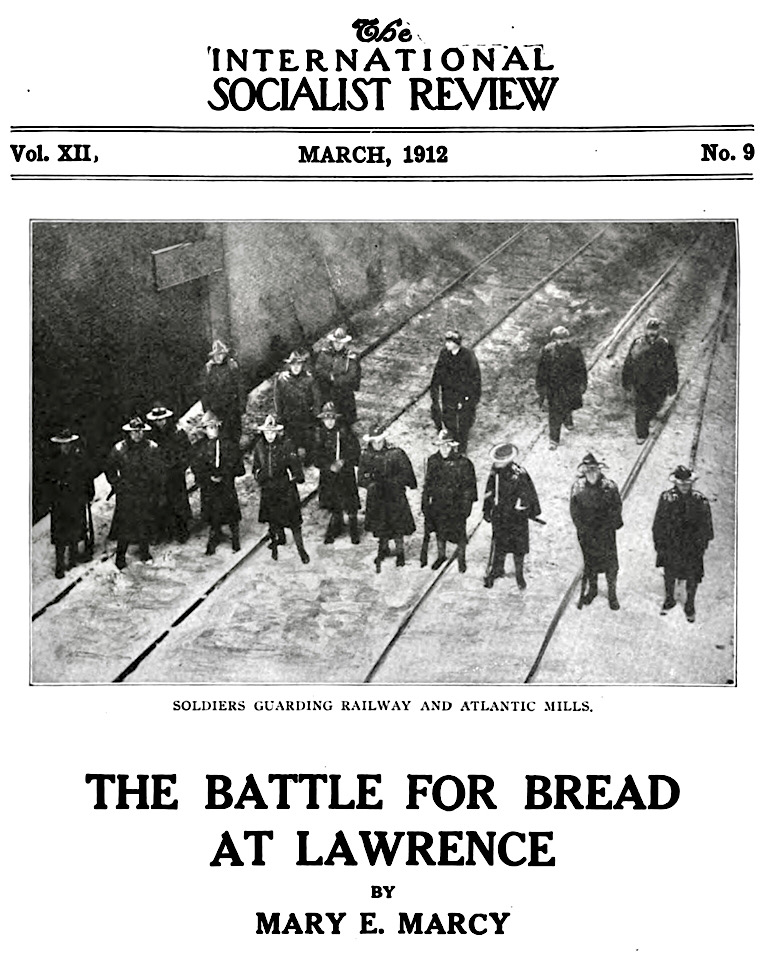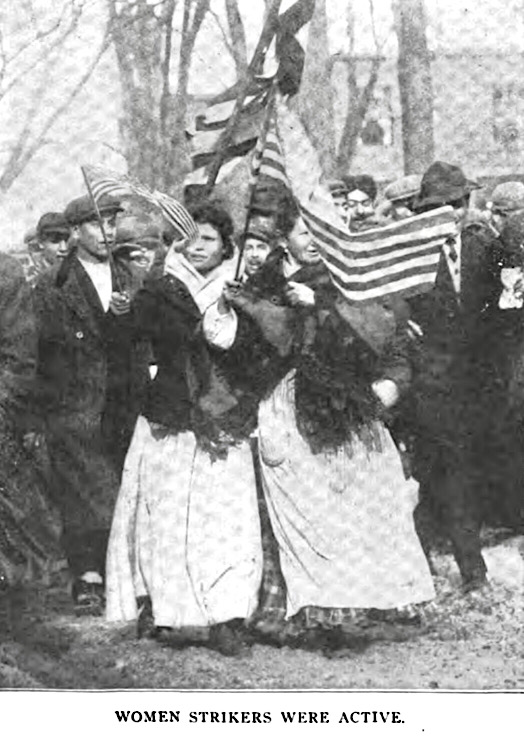 —————
—————
Hellraisers Journal – Monday March 4, 1912
“The Battle for Bread at Lawrence” by Mary E. Marcy, Part I
From the International Socialist Review of March 1912:
THE strike of the 25,000 textile workers at Lawrence, Mass, came so suddenly that the Woolen Trust was overwhelmed. It started January 12, pay day at the mills. Without warning the mill owners docked the pay envelopes of their employes for two hours in time and wages as a result of the new 54-hour law which went into effect January first.
The drop averaged only 20 cents a worker and the American Woolen Company fondly imagined that their wage slaves had been sufficiently starved and cowed into docility to endure the cut, just as they had suffered a speeding up of the machines so that the output per worker in 54 hours was greater than it had been on the 56-hour basis.
But trouble started with the opening of the docked pay envelopes, and before the day was spent, Lawrence had a wholly unexpected problem on its hands. The disturbance spread quickly and within an hour 5,000 striking men and women were marching through the streets of the mill district, urging other mill workers to join them.
Their number was augmented at every step and soon
Ten thousand singing. cheering men and women, boys and girls, in ragged, irregular lines, marching and counter-marching through snow and slush of a raw January afternoon—a procession of the nations of the world never equaled in the “greatest show on earth”—surged through the streets of Lawrence…..You listened to the quavering notes of the Marseillaise from a trudging group of French women and you heard the strain caught up by hundreds of other marchers and melting away into the whistled chorus of ragtime from a bunch of doffer boys. Strange songs and strange shouts from strange un-at-home-looking men and women, 10,000 of them; striking because their pay envelope had been cut “four loaves of bread.”
—-The Survey.


